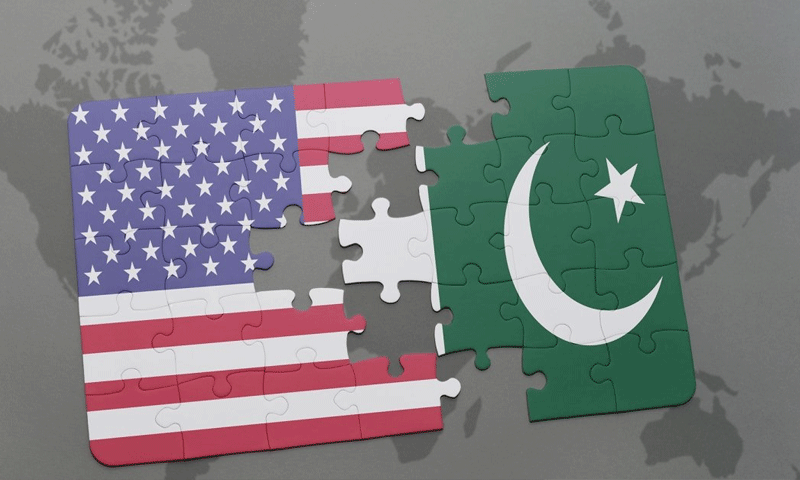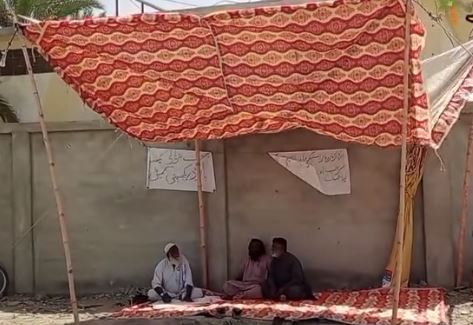U.S. Imposes Sanctions on Four Pakistani Institutions Over Missile Program Involvement

Islamabad:The United States has imposed sanctions on four Pakistani institutions, including the National Development Complex, for their alleged involvement in Pakistan’s ballistic missile program. These sanctions freeze any U.S. assets belonging to the sanctioned entities and prohibit American businesses from engaging in transactions with them.
In response, Pakistan has condemned the sanctions as “unfortunate and biased,” emphasizing that the country views its missile capabilities as vital for defending its sovereignty and regional stability. The government believes that such measures are unfairly targeting its strategic defense efforts while overlooking similar activities by other countries in the region, especially India.
### **Potential Negative Effects of U.S. Sanctions on Pakistan**
1. **Economic Impact:**
The sanctions could limit Pakistan’s access to advanced technology, which could hinder the country’s economic growth and development. Restrictions on technological imports may also have long-term repercussions on various sectors reliant on innovation and modernization.
2. **Regional Stability:**
Pakistan’s missile program is viewed as a countermeasure against regional threats, particularly from India. These sanctions may upset the balance of power in the region, giving India an undue advantage and potentially destabilizing regional security.
3. **International Relations:**
The sanctions could strain Pakistan’s diplomatic ties with the U.S. and other Western nations, complicating cooperation in areas such as counterterrorism and regional security. This deterioration in bilateral relations may have broader consequences for Pakistan’s standing on the global stage.
### **Pakistan’s Counterarguments and Concerns**
1. **Allegations of Bias and Double Standards:**
Pakistan has criticized what it sees as a “double standard” in U.S. policy. While Pakistan’s missile program faces sanctions, the U.S. has not imposed similar measures on India, which is also advancing its missile capabilities. Pakistan argues that this creates a sense of bias, as the country’s defense needs are largely driven by regional security concerns.
2. **Imbalance of Power in the Region:**
The sanctions are likely to tip the regional balance in favor of India, which already possesses a superior military and technological edge. Pakistan believes these measures will undermine its ability to maintain a credible deterrent against its much larger neighbor.
3. **Impact on National Security:**
Pakistan views its missile program as essential for national security. The imposed sanctions may hinder Pakistan’s ability to continue developing and maintaining its strategic defense capabilities, leaving it more vulnerable to external threats.
4. **Growing Dependence on China:**
Faced with growing isolation from the West, Pakistan may strengthen its strategic partnership with China. Increased reliance on China for military and technological support could lead to greater regional influence for Beijing, further polarizing international relations in South Asia.
5. **Escalation of Tensions with India:**
The sanctions could exacerbate existing tensions between Pakistan and India, especially in the context of the ongoing rivalry between the two nuclear-armed neighbors. The imbalance created by these measures could lead to an arms race or escalate the risk of military confrontations in the region.
### **Impact on U.S.-Pakistan Relations:**
The sanctions risk further complicating an already strained relationship between the U.S. and Pakistan. In recent years, cooperation between the two countries has been tested over various issues, including counterterrorism efforts and the situation in Afghanistan. The imposition of these sanctions could result in reduced cooperation on these fronts, potentially isolating Pakistan further from the U.S. and its allies.
### **Economic Consequences:**
The sanctions could limit Pakistan’s ability to access critical technologies and may negatively affect its participation in global supply chains. As a result, Pakistan’s economic growth could be stunted, with potential job losses and setbacks in industrial development.
### **Internal Political Implications:**
On the domestic front, the sanctions could have political consequences for the ruling government. Public opinion may shift, as the government is likely to face criticism for its inability to safeguard national interests in the face of international pressure. The leadership will need to balance these external challenges with internal political dynamics.
### **Experts’ Views on the Sanctions:**
Many experts argue that the sanctions will have a limited impact on Pakistan’s strategic capabilities. Despite the restrictions, Pakistan has demonstrated resilience in the past, finding alternative suppliers for critical technology and components from countries such as China, Russia, and Turkey. Pakistan is also working on boosting its domestic capabilities in missile technology, reducing reliance on foreign suppliers.
Pakistan’s missile program is spread across various organizations, making it difficult to disrupt completely. Despite the sanctions, the country is likely to continue developing its strategic defense capabilities through alternative channels, including partnerships with other countries.
Some experts also suggest that the sanctions could backfire by pushing Pakistan closer to China, thereby strengthening the strategic partnership between the two countries. In this scenario, the U.S. sanctions could inadvertently accelerate Pakistan’s missile program as a response to external pressure.
### **Conclusion:**
While the sanctions imposed by the U.S. may have symbolic significance, experts believe their practical impact on Pakistan’s strategic capabilities will be limited. Pakistan’s ability to find alternative suppliers and enhance its domestic production of missile technology means that the long-term effects of the sanctions may not be as severe as anticipated. However, the geopolitical consequences—such as strained ties with the U.S. and increased dependence on China—are likely to shape the future course of Pakistan’s foreign policy. Pakistan will need to take further measures to strengthen its internal unity and assert its strategic priorities in the face of international pressure.






